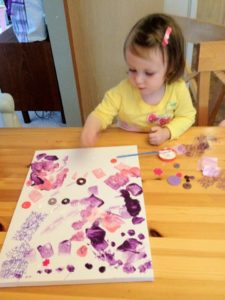A report from the American Academy of Pediatrics (AAP) is very clear that scheduled activities should not come at the expense of free unstructured play. Unstructured play is so important to the developing child’s brain. Well, this is sure hard to follow through with as a parent. As a parent I’m constantly asked what activity my child is in. While I understand the need to ask this typical socially acceptable question, it often comes with a judgment of your child being in too many activities or not enough activities. It is so challenging to offer both scheduled activities and allow your child to run and play with freedom.
My question is, if unstructured play is so beneficial for children then why are our first graders sitting in their desks reading and writing the entire time? This is a challenge for schools and parents to find the balance that allows all children to reach their potential while allowing them unstructured free time. Isn’t play the most reliable form of self education? Isn’t this what the school district is wanting?
What are the benefits of unstructured play?
- Play is important to healthy development of the brain
- Play that is not directed helps children learn how to work collaboratively, to share, to negotiate and to resolve conflicts
- When play is child-driven, children put into practice decision-making skills, move at their own pace (and this is different from child to child), they discover their own interests organically and ultimately engage fully.

Now lets talk Arts and Crafts. Crafts are my nemesis…. “No Johnny, the eyeball on the dog needs to by put here beside the other eye ball” How creative (insert eye roll). What about dumping a pile of recycling on the table and saying “CREATE!” Not only are we helping their self confidence but they are also cognitively and physically growing by this simple example of art (not crafting) Fine motor skills involve movements of the fingers, hands and wrists. Strong fine motor skills help children manipulate small objects and eventually type, cut, tie, sew and do other complex activities that require working with the small muscles of the hands. So if they have this ability early in their school days they will have better penmanship, more accurate typing skills, problem solving skills and the children learn to make a plan and execute their ideas.

